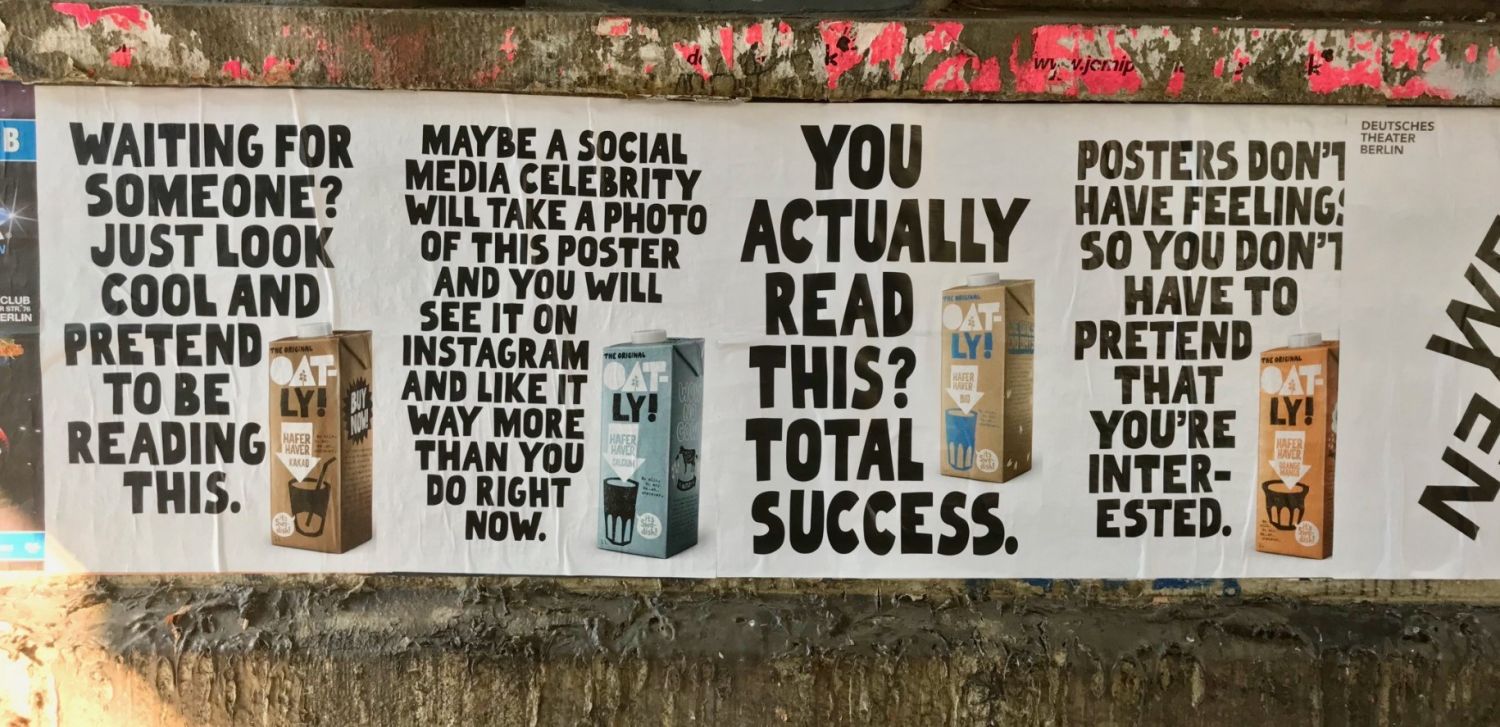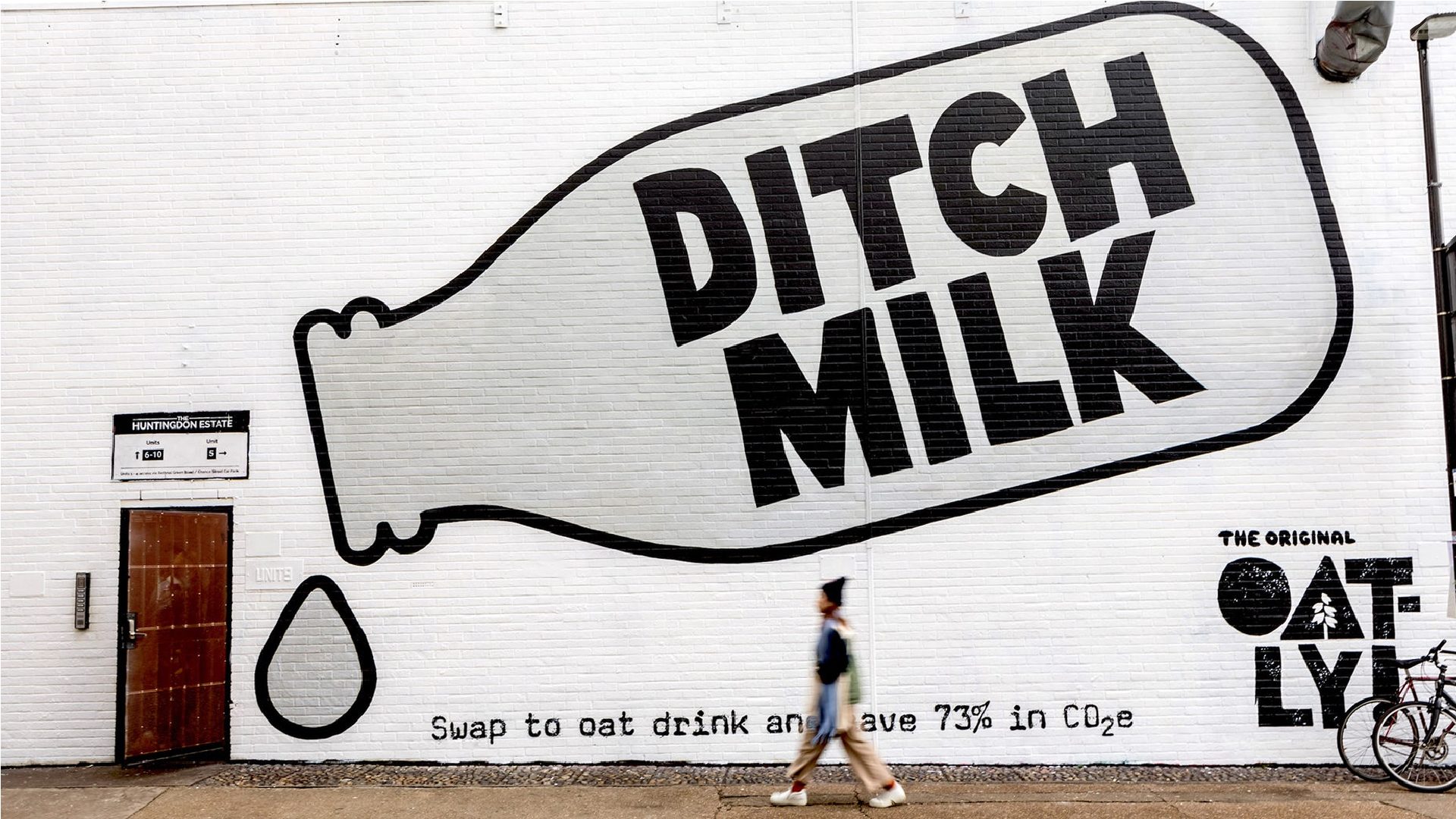The dairy milk alternative brand Oatly has made overstated claims about its environmental impact through advertising.
It’s hard to believe that oat milk could piss so many people off, but Swedish brand Oatly has found itself at the centre of much controversy over the years.
The dairy milk alternative has already come under fire for contributing to deforestation in the Amazon, having a high sugar content while advertising itself as a healthy drink, and for selling company stakes to Blackstone, a private equity firm chaired by Donald Trump.
Oatly is also known for it’s highly obnoxious marketing style, which can be painful to read and yet impossible to ignore. Slapped onto bus stops, framed in the Underground, and even painted on blank walls or pasted to park benches, the bold text and overbearing messaging style tends to come across like a hyper 12-year-old after too much Pick N Mix.
Needless to say, it’s irritating – but it seems like that’s Oatly’s strategy.
In recent days, Oatly has been criticised for pushing their latest marketing claim which states: ‘climate experts say cutting dairy and meat products from our diets is the single biggest lifestyle change we can make to reduce our environmental impact.’



















